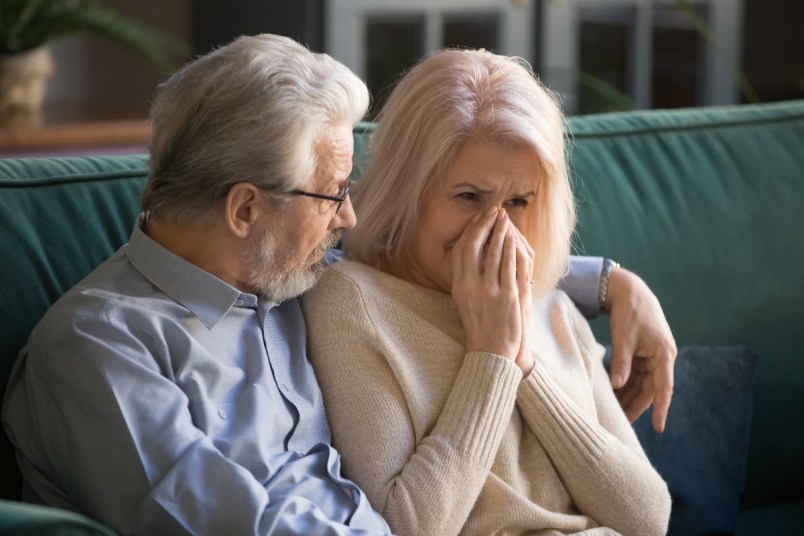Expert Advice: How Do I Stop Feeling Like Everyone’s Out to Get Me?
Learn to trust other people — and yourself.

With all the divisiveness these days, it can be hard to trust in the goodness of others. Here, our experts provide you with some simple ways to open your heart and feel more at peace.
Meet our expert panel
- Carolyn Daitch, PhD, co-author of The Road to Calm Workbook, is a psychologist who teaches people to recognize and manage stress and anxiety.
- Eli Finkel, PhD, author of The All-or-Nothing Marriage: How the Best Marriages Work, is a professor of psychology at Northwestern University.
- Leah Guy, author of The Fearless Path: A Radical Awakening to Emotional Healing and Inner Peace, is an expert on emotional healing. Visit LeahGuy.com.
Look back to look ahead
When we get defensive or skeptical, it’s often because of an old hurt, says expert Carolyn Daitch, PhD, recalling this saying: If it’s hysterical, it’s historical. In other words, something in our past is likely making us react. “For example, if a friend didn’t include you in an activity, it may sting because you felt excluded as a kid.” Ask yourself what you got too little of in the past. Show yourself compassion — you’ll instantly feel calmer.
Widen your view
To challenge negative assumptions about someone, Daitch suggests you just grab a piece of paper. “Make three columns: On the left, write your thought; in the middle, note the evidence; and in the third column, write the facts based on the evidence.” For example, if you worry your coworkers are against you, what’s the proof? Maybe it’s just one person who was rude. “In the third column, shift to what is true: ‘I felt judged when she said X — but I can handle it’” she advises.
Discover your whys
There are a few common triggers that make us distrusting, including feeling abandoned, judged, and misunderstood, says Daitch. “You might tell yourself, ‘It’s true my partner criticized me, and I’m sensitive to that, but let me learn more.’” You might tell him, “I heard you say X. Is that what you meant?” Then decide if he’s reasonable. Pausing to reflect helps you respond with poise.
Lower your guard slowly
The decision to trust others is not easy, confirms expert Eli Finkel, PhD. “It’s a real dilemma, because if we’re overly trusting, we can get hurt, but if we can’t trust, we deny ourselves the connection we crave.” He suggests letting down your guard incrementally. This could mean telling someone a minor secret to test how they treat you. “The major upside of this strategy is that it puts a cap on how hurt you can get.” And it gives people the chance to prove that they are on your side.
Shift into optimism
Those of us who have a hard time trusting tend to be pessimistic, says Daitch. To shift into optimism, picture a bright future. “If you’re worried about a friendship, say, imagine it going well three months from now,” she urges, explaining this visualization creates what’s called “positive expectancy.” Increasing our optimism helps us see that the struggles of the moment are fleeting — the future is bright.
Be your own best ally
Letting yourself become more open isn’t just about trusting people around you, it’s about trusting yourself, notes expert Leah Guy. She advises building self-confidence by setting small, achievable goals, like taking care of yourself every day and being the person in your relationships you’d like others to be toward you. “When we have faith in ourselves, it’s easier to extend that trust to others.”
A version of this article originally appeared in our print magazine, Woman’s World.












